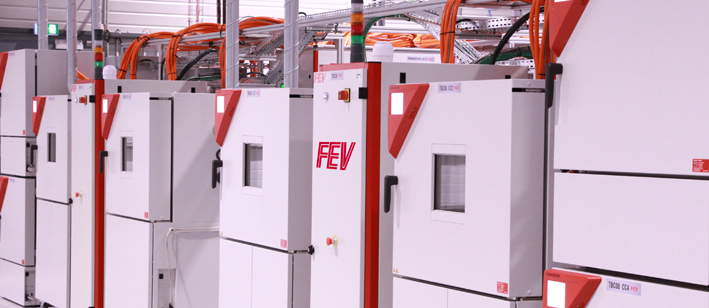Due to the increasing need for high-voltage battery development for electric vehicles, corresponding testing facilities are increasingly important for manufacturers. Addressing this need, specialist FEV says that its software and testing solutions division, FEV STS, is introducing a new range of high-tech applications for battery testing.
The company explained that its latest automation software MORPHEE, and its FEVFlex information management software, feature standardized hardware solutions as well as engineering software customizable to all testing requirements. “Optimal work- and information flow is key in battery testing centers,” said Martin Rebbert, group vice president of FEV STS.
Importantly, the company noted that a single information system is used to manage the entire testing process from start to finish, which includes the following steps:
• Tagging received and to be tested battery packs, modules or cells with a dedicated bar code
• Assignment of a secure storage
• Equipping the so called UUT (unit under test) with measurement devices in the prep zone
• Mounting on the according test bench
Further easing the data processing path is the fact that only one file format is used for equipment and measurement data. FEV reinforces the point that this approach forms the basis for the operating processes in its battery test centers.
For example, at its 12,000m² (1,114m2) complex in Leipzig, the testing facilities do not only encompass electrical testing of battery modules and complete high-voltage batteries, but also abuse testing covering short-circuit tests, simulation of internal cell errors, as well as acceleration and impact tests simulating a severe accident. Meanwhile, its French site near Paris focuses on cell development, performing tasks such as characterization and ageing tests on cells and analyzing raw materials.


